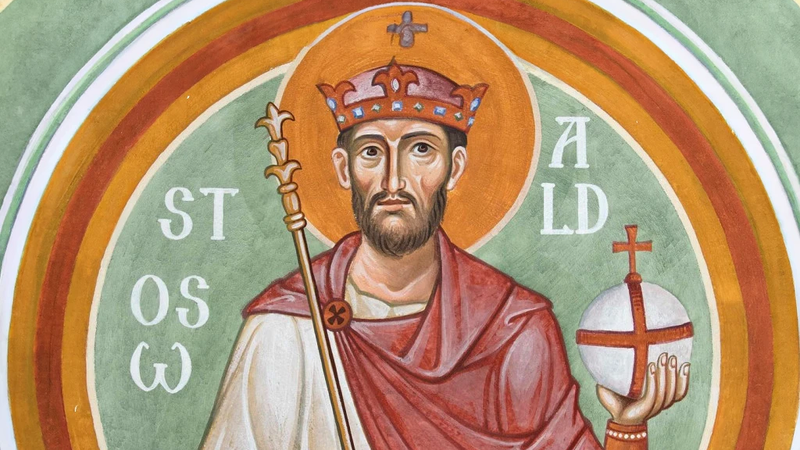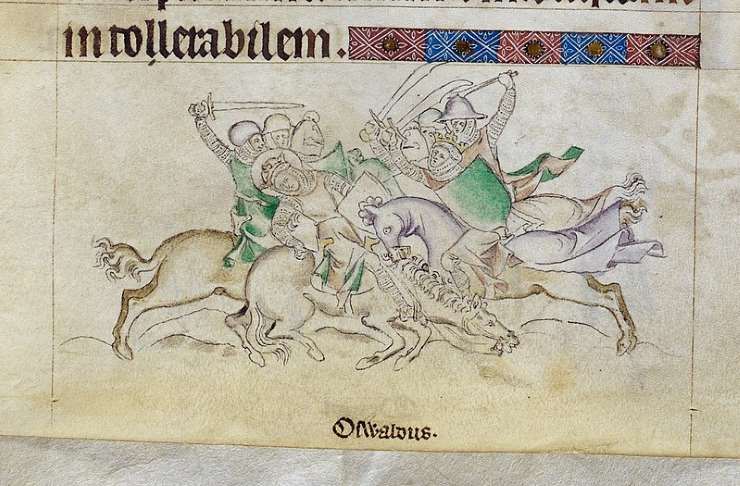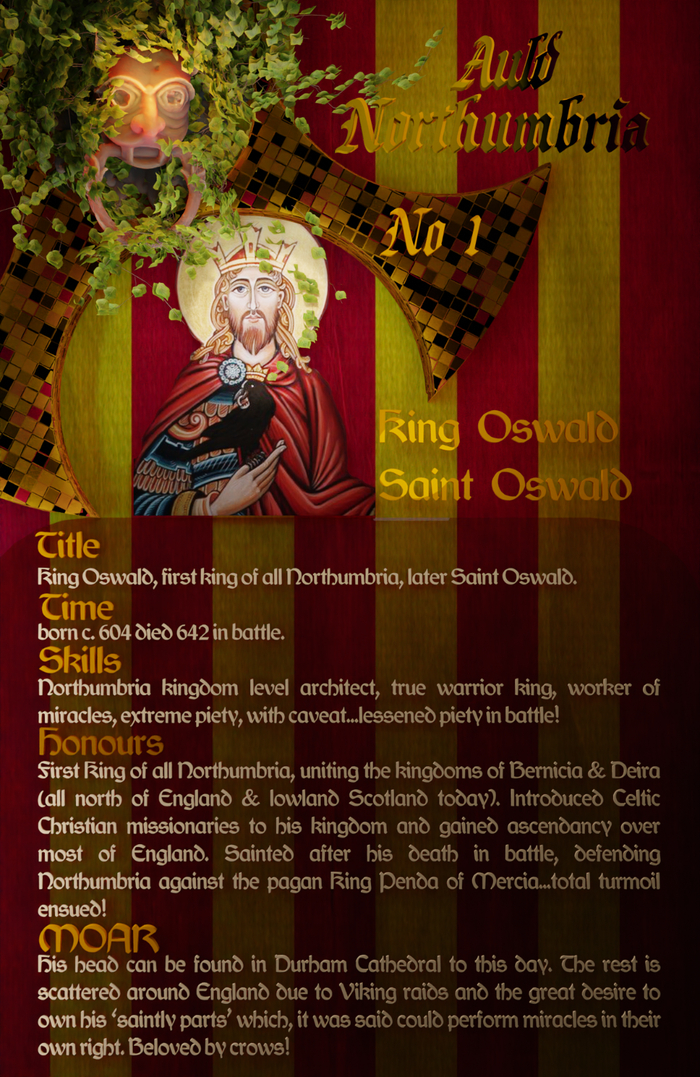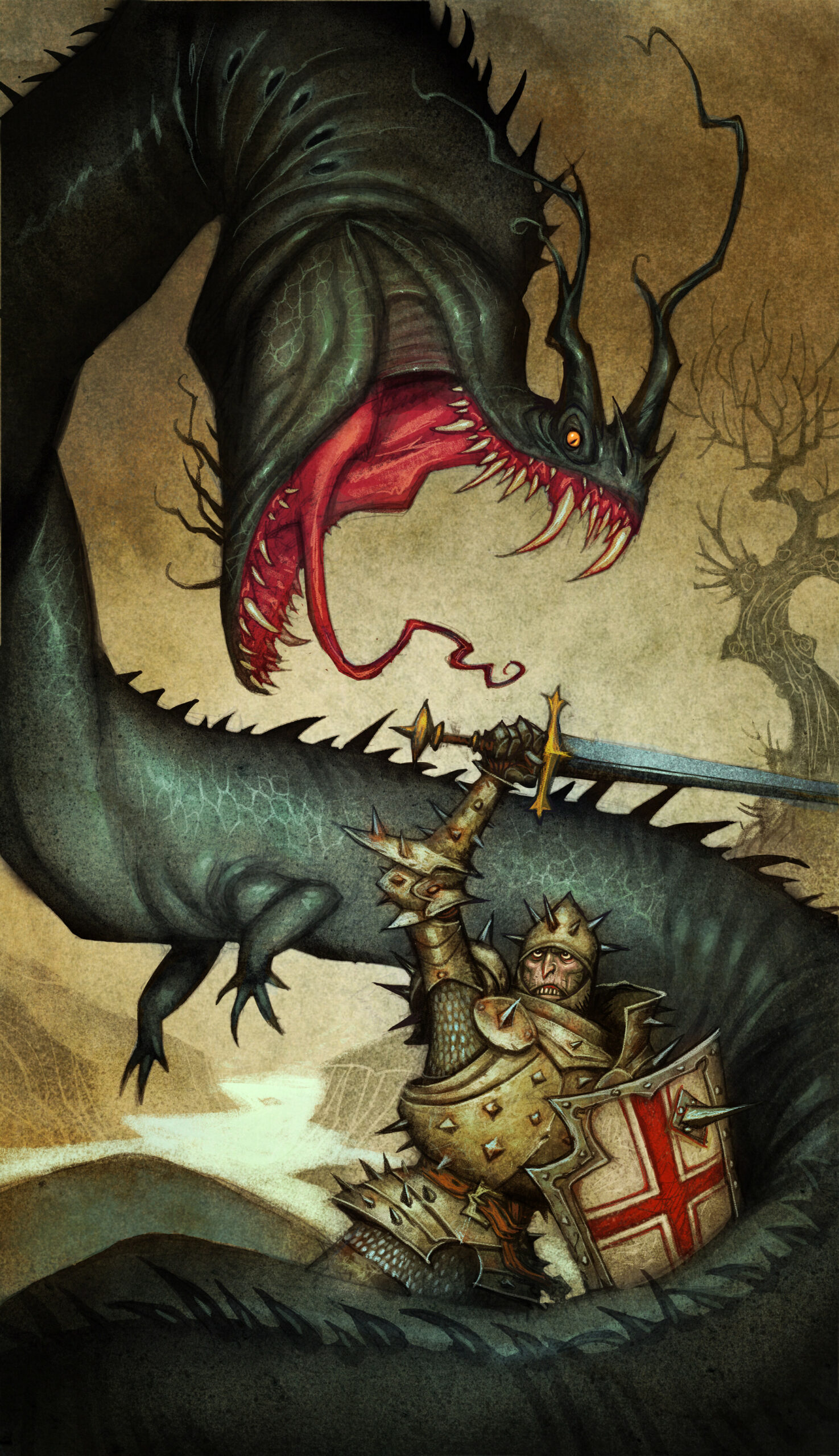
Oswald of Northumbria
Faithful King, Warrior, and Saint!
Oswald of Northumbria, true and brave, Led his kingdom with honor, till his grave.
St. Oswald of Northumbria was an Anglo-Saxon king who ruled Northumbria in the 7th century. He is venerated as a saint by the Roman Catholic Church, the Anglican Church, and the Eastern Orthodox Church.
Oswald was born in the Kingdom of Northumbria, which was located in what is now North East England. He was the son of Æthelfrith, the king of Northumbria, and was raised in exile after his father was killed in battle. Oswald returned to Northumbria in the 630s and became king in 634.
During his reign, Oswald was known for his strong Christian faith and his efforts to spread Christianity throughout Northumbria. He established monasteries and churches, and he encouraged the preaching of the gospel throughout his kingdom. Oswald was also known for his military successes, particularly his victory over the pagan king Penda of Mercia at the Battle of Heavenfield in 634.
Oswald’s reign was marked by a time of great cultural and spiritual renewal in Northumbria. He invited monks from the Irish monastery of Iona to come to Northumbria and establish monasteries, and he encouraged the study and practice of monasticism. Oswald also supported the spread of the gospel through missionary work, and he is credited with helping to bring the message of Christianity to the Anglo-Saxon people.
In addition to his religious and cultural contributions, Oswald was also known for his efforts to bring peace and unity to Northumbria. He worked to establish good relations with other Anglo-Saxon kingdoms, and he is said to have had a close friendship with the king of Kent, Eadbald. Oswald also worked to strengthen Northumbria’s economy and military, and he is credited with helping to establish the kingdom as a major power in the Anglo-Saxon world.
The battle of Maserfield, fought in 642, was a pivotal moment in the history of Northumbria. It was there, on the outskirts of what is now the town of Oswestry, that King Oswald fell to the forces of the pagan king Penda of Mercia. Despite being outnumbered, Oswald fought bravely, but ultimately succumbed to his wounds. As he lay dying, it is said that he prayed for the souls of his soldiers, and his final words were a prayer for his enemies.
In the aftermath of the battle, Oswald’s body was mutilated and his head placed on a stake as a trophy (or cross, it’s a little hazy). It was then that a flock of crows descended, pecking at the king’s eyes. This eerie scene was seen by many as a sign of Oswald’s spiritual vision and foresight, a testament to his unwavering faith in the face of death. The town of Oswestry, which would one day bear his name, stood as a silent witness to the martyrdom of this Christian king. The crows, too, seemed to sense the sanctity of the moment, their dark silhouettes a poignant reminder of the eternal struggle between light and darkness.

Oswald is remembered as a strong and courageous leader, who combined military strength with a deep devotion to his faith and a commitment to justice and charity. His legacy lives on in the many churches and monasteries that bear his name and in the traditions and practices of the Christian churches that honor him as a saint.
Today, St. Oswald is remembered as a patron saint of Northumbria. His tomb at Lindisfarne remains a place of pilgrimage to this day. Although, the location of his remains is a mystery his head may lie in Durham Cathedral.
There are whispered voices that say, St. Oswald of Northumbria was an inspiration for the character of Aragon in J.R.R. Tolkien’s “Lord of the Rings” series.

His feast day is celebrated on August 5th. Go have a pic-nic and raise a glass/can to St Oswald! Cheers.




